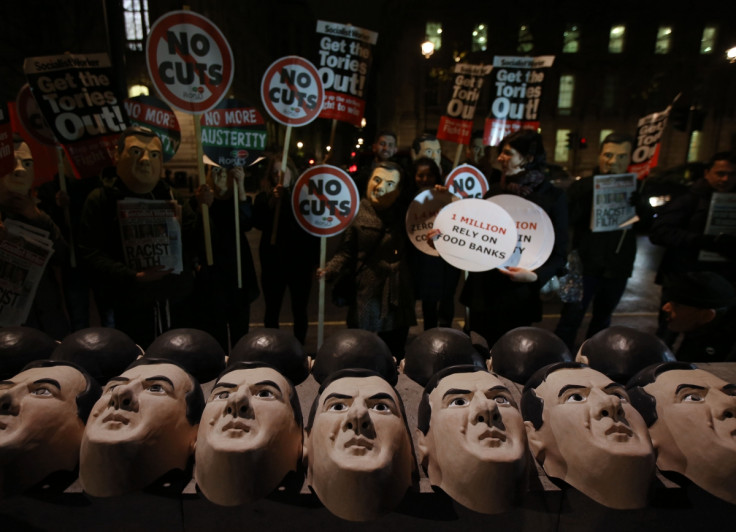Austerity: Rupert Harrison wants to preserve the post-financial crisis paranoia he helped Osborne create

Many people, both in the UK and abroad, have heard of Ed Balls, who was Labour's shadow chancellor before losing his parliamentary seat in the general election of May. Few, however, outside Westminster and Whitehall, will have heard of Dr Rupert Harrison, who until recently played a similar role for Chancellor George Osborne to that of Ed Balls when Gordon Brown was chancellor.
Harrison has suddenly come out of hiding to appear in the public prints, with a long article in last Saturday's Financial Times advocating something truly bizarre.
Now, Ed Balls will go down in history as the economic adviser who did more than anyone else to prevent the UK from joining the eurozone. His advice and influence were crucial, at a time when the then prime minister Tony Blair, and most of the British Establishment, were gung ho for joining.
Ed Balls was also the man who warned in a memorable speech at Bloomberg's London headquarters in August 2010 that the austerity programme just unveiled by George Osborne that summer in his first budget was dangerously ill-timed and inappropriate. He argued it would impede the economic recovery that had begun as a result of the fiscal stimulus administered by Labour in the face of the financial crisis. He was right, and the dampening effect of the austerity programme has been referred to several times by Bank of England governor Mark Carney.
Well, Rupert Harrison was to Osborne's austerity programme what Ed Balls was to Gordon Brown's decision not to join the euro. That is to say, he was the key economic adviser urging Osborne on, and the key figure behind Osborne's Fiscal Charter, an absurd, and essentially unconstitutional device, which in theory binds the present and future governments to aim at and achieve budget surpluses on current and capital account combined.
Most economists regard the Fiscal Charter as absurd. Just as few people can buy a house with one year's earnings, but require a mortgage that takes years to pay off, so industrial corporations borrow long term for capital projects.
Similarly, the investment in public sector infrastructure, which the UK so badly needs requires long-term finance, not to be paid off in one year.
But the Osborne/Harrison rule means that, in order to achieve a balance on both current and capital expenditure, current spending has to be squeezed savagely. This applies to public spending in all sorts of areas, for example, the kind of social services under which people are treated at home instead of adding to the pressure on hospitals.
This is conducted by local authorities, whose grants from central government have been cut back drastically. Cuts were also planned in policing until a successful fightback by the Police Federation.
Now, Rupert Harrison, a key propagator of these austerity policies, has moved on to the somewhat less austere lush pastures of BlackRock, and is described by the Financial Times as BlackRock's "chief macro strategist for diversified strategies". Are you still with me?
Having been such a powerful advocate of austerity policies that contributed to the slowest British economic recovery on record, and which dented the animal spirits of business people instead of boosting them, Harrison now calls upon policy-makers "to maintain some of the paranoia brought by the crisis". He adds: ''As the recovery continues, policy-makers will find it ever harder to maintain the right amount of paranoia."
He is beginning to sound like Peter Sellers as Dr Strangelove in that great movie. "Paranoia", as readers will know, means "derangement". The specific definition provided by The Shorter Oxford English Dictionary is: "Chronic mental unsoundness characterised by delusions and hallucinations."
It was people like George Osborne and Rupert Harrison who argued in 2010 that the UK's financial position was on a par with that of Greece, and austerity was needed. The truth was that funds were pouring into London from all over the world, whereas the Greek finances were in dire trouble.
I am well aware that my medical friends dislike the popular use of the word paranoia, which, as we have seen, refers to a serious mental condition. But Harrison has started it. Were he and George Osborne paranoid when they embarked on these austerity policies, I wonder?
© Copyright IBTimes 2024. All rights reserved.






